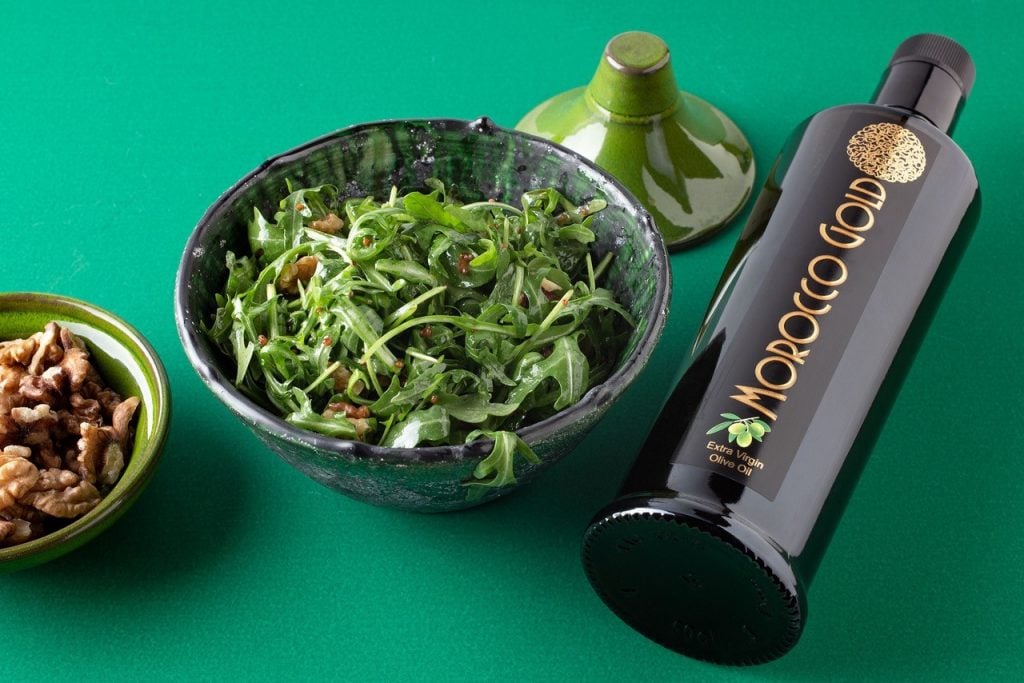New Study Says Diet Can Reduce Mortality Risk In Women By 23%

Summary
Contents
New Study Links Mediterranean Diet With 23% Reduced Mortality Rate
Following the Mediterranean Diet – included healthy fats like extra virgin olive oil – can reduce mortality risk in women by 23%, according to new research.
The study, published in JAMA Network Open, followed over 25,000 initially healthy women from the United States for 25 years.
The research revealed that those who adhered more closely to the Mediterranean diet had lower risks of dying from all causes, particularly cancer and cardiovascular disease.
Senior author Dr Samia Mora, a cardiologist and director of the Centre for Lipid Metabolomics at Brigham and Women’s Hospital, emphasised the importance of diet for longevity.
“For women who want to live longer, our study says watch your diet. Following a Mediterranean dietary pattern could reduce the risk of death by about one quarter over more than 25 years, with benefits for both cancer and cardiovascular mortality.”
Dr Mora.
Why Extra Virgin Olive Oil Is A Vital Contributor To Health Benefits Of Mediterranean Diet.
The Mediterranean diet, known for its plant-based components including nuts, seeds, fruits, vegetables, whole grains, and legumes, primarily uses olive oil as the main fat source.
The study, part of the Women’s Health Study (Harvard University), explored how adherence to the Mediterranean diet affects various biological pathways.
As reported by MSN.com, researchers evaluated around 40 biomarkers linked to metabolism, inflammation, insulin resistance, and other clinical risk factors.
The most significant findings were changes in biomarkers of metabolism and inflammation, followed by those related to triglyceride-rich lipoproteins, obesity, and insulin resistance.
Lead author Dr Shafqat Ahmad, an associate professor of Epidemiology at Uppsala University and a researcher at the Centre for Lipid Metabolomics and the Division of Preventive Medicine at Brigham, highlighted the public health implications.
Even modest changes in established risk factors for metabolic diseases can yield substantial long-term benefits from following a Mediterranean diet. This underscores the potential of encouraging healthier dietary habits to reduce overall mortality risk.
Dr Shafqat Ahmad
Despite its strengths, the study has some limitations, including its focus on middle-aged and older well-educated female health professionals who were predominantly non-Hispanic and white. Dr Mora noted the global adaptation of the Mediterranean diet, stating:
The health benefits of the Mediterranean diet are recognised by medical professionals, and our study offers insights into why the diet may be so beneficial. Public health policies should promote the healthful dietary attributes of the Mediterranean diet and discourage unhealthy adaptations.
Dr Mora
Extra Virgin Olive Oil And Increased Longevity
The JAMA Network Open study follows previous research which shows regular consumption of extra virgin olive oil can have a positive impact on life expectancy, for example:
Previous research reported that olive oil can reduce the risk of fatal heart disease and other diseases. The Times carried two articles about the research, a news story and a feature which included an interview with the study author. The Mail article did explain that the results had been adjusted to take other factors into account.
The British Heart Foundation looked behind the headlines to give their own view.
The study, published in the Journal of the American College of Cardiology, analysed the diet of around 90,000 men and women over a 28-year period. None of them had heart or circulatory disease or cancer at the outset. Every four years they were asked how often they ate specific foods.
Researchers found those who consumed the most olive oil (more than half a tablespoon a day) were less likely to die from any cause, including heart disease or stroke, cancer, lung disease and neurodegenerative disease (such as Alzheimer’s disease or vascular dementia).
After adjusting for other factors, the people who ate the most olive oil had a 19 per cent lower risk of dying from cardiovascular causes such as heart disease or stroke, compared with the people who ate the least olive oil. The biggest effect was seen in neurodegenerative disease deaths (29 per cent lower risk in people who ate most olive oil). For respiratory disease the risk was 18 per cent lower and for cancer it was 17 per cent lower.
The study also found substituting 10 grams a day (just over a tablespoon) of fats such as margarine, butter, mayonnaise and dairy fat with the equivalent amount of olive oil was also associated with a lower risk of death.
